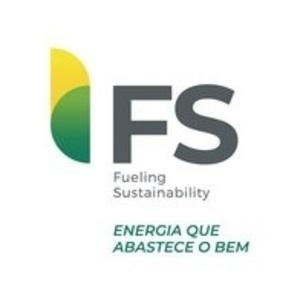FS to develop BECCS project at Brazilian biorefinery

July 8, 2021
BY FS
FS, the first and largest Brazilian company to produce ethanol, animal nutrition and bioenergy products exclusively from corn, brings innovation with a project to implement a revolutionary system utilizing proven technology: the BECCS - bioenergy with carbon capture and storage system.
By implementing the BECCS system, the company will not only reduce its CO2 emissions into the atmosphere but will also remove CO2 from the environment. The system consists of capturing, compressing, dehydrating and transporting the CO2 for deep and safe underground injection and permanent storage. The BECCS system will be installed at FS' Lucas do Rio Verde plant. The carbon injection site will be located within a 5km radius of the plant, to be defined according to geological and geophysical studies, and will be monitored during its use.
By implementing the BECCS system, the company will be the first biorefinery globally to have a negative carbon footprint. The company's goal is to reach, by 2030, 32 million CBIOs, referencing tons of CO2 under the Brazilian RenovaBio program, with the implementation of its expansion plan and this technology in Brazil. Worldwide, there are currently 3 commercial projects using the BECCS system. The project would also be Brazil's first BECCS. The BECCS benefit, in terms of carbon life cycle, have already been certified by the California Air Resources Board (CARB) for other companies in the Low Carbon Fuel Standard (LCFS), California's biofuels program.
"In our tireless pursuit of transforming our industry, we constantly invest in innovative solutions and the BECCS system is an important technology to help achieve carbon neutrality goals to address climate change," stated Rafael Abud, the CEO of FS.
The adoption of the BECCS system is part of a set of actions established by FS in the company's six long-term commitments (FS 2030 Sustainability Commitment). These goals are related to the United Nation's Sustainable Development Goals (SDG) and consistent with the Paris Agreement.
Among the six goals, two commitments bring innovation to the industry: (i) the reduction of CO2 emissions through a carbon capture and storage system; and (ii) the promotion of ongoing improvements and transparency in governance processes, aimed at obtaining the maximum ESG rating with leading agencies in the segment. This score was reached in March 2021 with the assessment carried out by Vigeo Eiris, a Moody's affiliate company.
Advertisement
Advertisement
In addition to these objectives, the Company has also assumed other commitments, such as social and environmental responsibility, water reduction, waste and effluent consumption, education and development of communities, and diversity and inclusion. All these objectives have specific goals for their achievement:
Social and environmental responsibility
•Implement our social and environmental policy to the entire corn and direct and indirect biomass supply chain, as well as all DDG direct sales, ensuring zero legal and illegal deforestation, no use of protected land and no slave-like labor.
•Develop commercial partnerships with intermediaries (trading companies, warehouses, etc.) to create a mapping system in 100 eprcent of the indirect supply chain.
Water, waste and effluents
•Reduce water consumption by 5 percent.
•Reduce the disposal of organic waste in landfills by 80 percent.
Advertisement
Advertisement
•Use 60 percent of effluents in fertigation.
Education and development of communities
•Create a technical training program and reach 70 percent of our industry employees who live in our communities.
Diversity and inclusion
•Reach 40 percent diversity in leadership positions (women, non-white, LGBTI+ and PWDs).
Related Stories
The U.S. exported 31,160.5 metric tons of biodiesel and biodiesel blends of B30 and greater in May, according to data released by the USDA Foreign Agricultural Service on July 3. Biodiesel imports were 2,226.2 metric tons for the month.
The USDA’s Risk Management Agency is implementing multiple changes to the Camelina pilot insurance program for the 2026 and succeeding crop years. The changes will expand coverage options and provide greater flexibility for producers.
EcoCeres Inc. has signed a multi-year agreement to supply British Airways with sustainable aviation fuel (SAF). The fuel will be produced from 100% waste-based biomass feedstock, such as used cooking oil (UCO).
CARB on June 27 announced amendments to the state’s LCFS regulations will take effect beginning on July 1. The amended regulations were approved by the agency in November 2024, but implementation was delayed due to regulatory clarity issues.
SAF Magazine and the Commercial Aviation Alternative Fuels Initiative announced the preliminary agenda for the North American SAF Conference and Expo, being held Sept. 22-24 at the Minneapolis Convention Center in Minneapolis, Minnesota.
Upcoming Events










